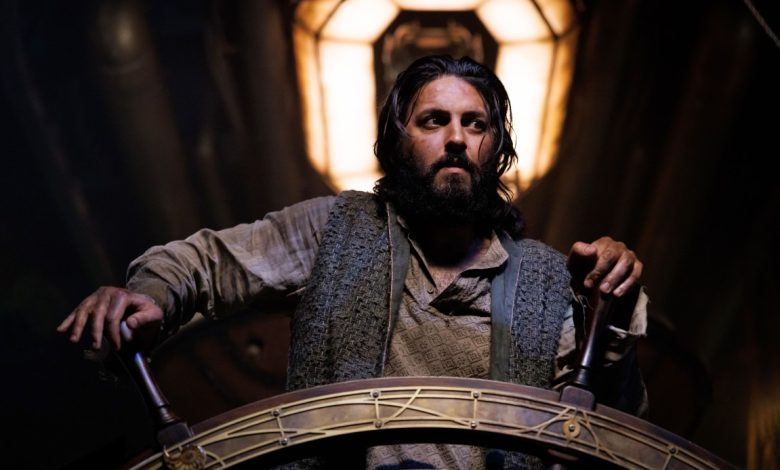Nautilus Series Review: A Thrilling Anti-Imperialist Adventure Beneath the Waves

Nautilus, AMC’s (formerly Disney’s) ambitious adaptation of Twenty Thousand Leagues Under the Sea, blends thrilling underwater adventure with biting anti-imperialist commentary. Set in the 1850s, the ten-part series follows Captain Nemo (played by Shazad Latif) as he pilots the world’s first submarine, escaping the tyranny of the British East India Mercantile Company.
This reimagined tale captures the essence of classic adventure stories while reframing them in a modern moral light. The sea teems with otherworldly creatures, lost treasures, and technical wonders—all crafted with stunning visual detail that today’s studios are capable of delivering. The show’s action is fast-paced and entertaining, reminiscent of Indiana Jones, with death-defying scenes and tension-filled underwater escapades.
But what sets Nautilus apart is its deeper narrative current. The series doesn’t shy away from exploring the evils of colonialism. Nemo and his multicultural crew, most of whom have escaped enslavement and war crimes, seek not only survival but freedom from imperial oppression. Pacharo Mzembe gives a standout performance as Boniface, the loyal first mate whose warmth and charisma shine through.
While character development sometimes takes a back seat to spectacle, the series does provide arcs worth noting. Georgia Flood’s portrayal of Humility—a competent engineer navigating a patriarchal system—evolves past early stereotypes. Her French companion, Lottie (Céline Menville), adds fire and wit to their dynamic. Their stories expose the limited freedoms afforded to women in both noble and servant classes, adding another layer of social critique.
Villainy in Nautilus comes dressed in red military coats and corporate greed. The British East India Mercantile Company, as depicted here, mirrors fascist forces of the 20th century. From Lord Pitt’s possessive obsession to Director Crawley’s ruthless capitalism, the show positions its antagonists not just as personal threats, but as representations of systemic evil.
Yet Nautilus never feels preachy. Its political themes are woven seamlessly into a gripping narrative full of monsters—both human and otherwise. The sea creatures are rendered with cinematic flair, whether it’s a close-up of an enormous eye or the menacing maw of a deep-sea beast. These encounters elevate the tension and remind viewers that danger lurks in every shadowed trench.
See More ...
Some plot points, including romance and mythic references, follow expected genre conventions. But these familiar beats offer comfort rather than cliché, grounding the story in its adventure roots. The love stories are predictable but emotionally resonant. Even the predictable twists serve the greater thematic arc.
Ultimately, Nautilus is an escapist fantasy grounded in historical reflection. Its audacity to frame the British colonial system with the same moral clarity typically reserved for 20th-century villains is striking. The show challenges viewers to reconsider history—not through lectures, but through compelling narrative and visual splendor.
Whether you’re drawn to sweeping seafaring epics, tales of righteous rebellion, or visually rich fantasy worlds, Nautilus delivers. It’s a rare combination: a morally grounded, politically relevant, and thoroughly entertaining adventure series.




